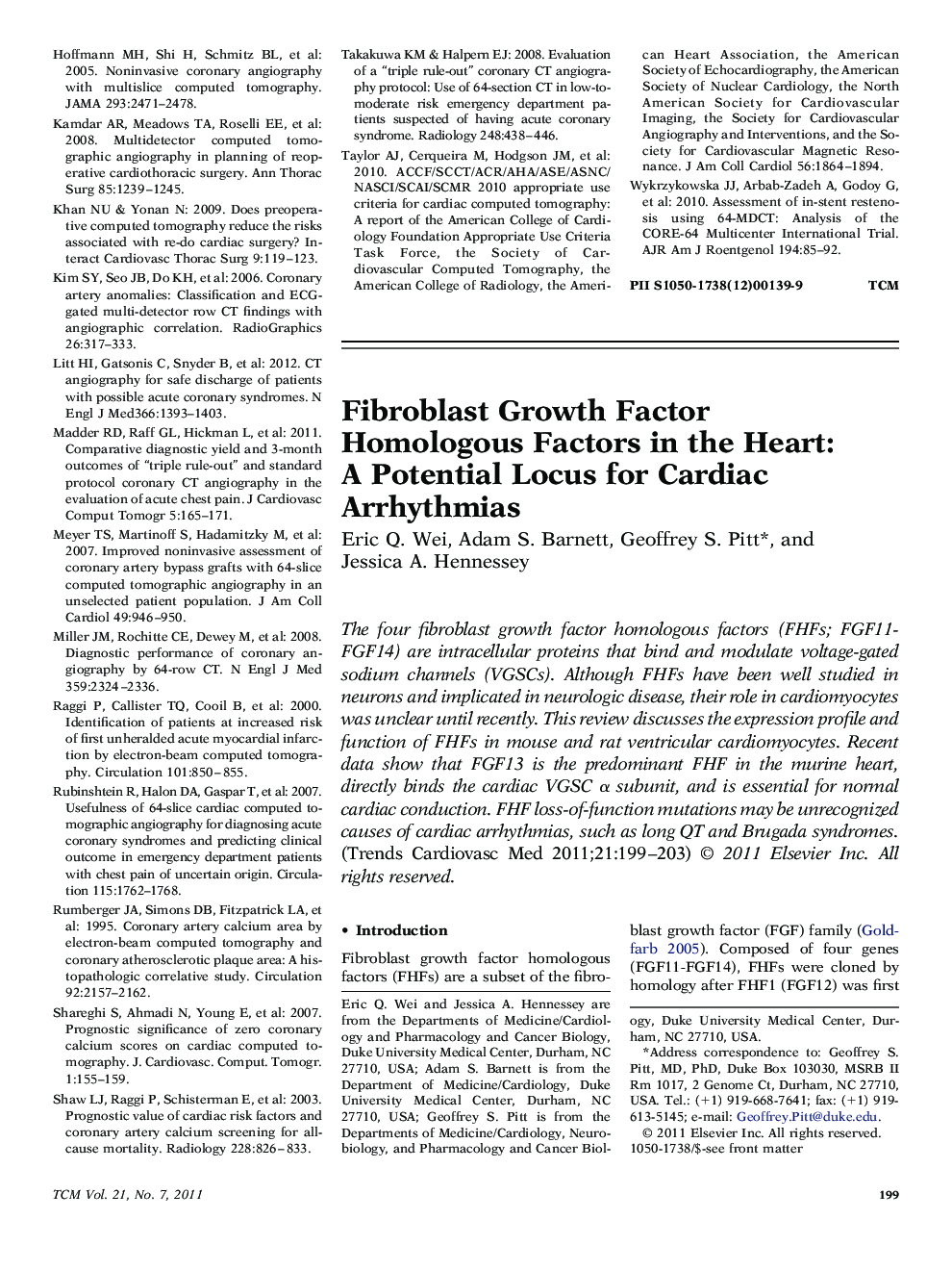| Article ID | Journal | Published Year | Pages | File Type |
|---|---|---|---|---|
| 3031745 | Trends in Cardiovascular Medicine | 2011 | 5 Pages |
Abstract
The four fibroblast growth factor homologous factors (FHFs; FGF11-FGF14) are intracellular proteins that bind and modulate voltage-gated sodium channels (VGSCs). Although FHFs have been well studied in neurons and implicated in neurologic disease, their role in cardiomyocytes was unclear until recently. This review discusses the expression profile and function of FHFs in mouse and rat ventricular cardiomyocytes. Recent data show that FGF13 is the predominant FHF in the murine heart, directly binds the cardiac VGSC α subunit, and is essential for normal cardiac conduction. FHF loss-of-function mutations may be unrecognized causes of cardiac arrhythmias, such as long QT and Brugada syndromes.
Related Topics
Health Sciences
Medicine and Dentistry
Cardiology and Cardiovascular Medicine
Authors
Eric Q. Wei, Adam S. Barnett, Geoffrey S. Pitt, Jessica A. Hennessey,
